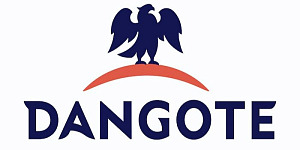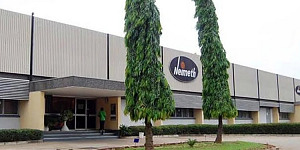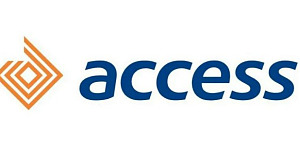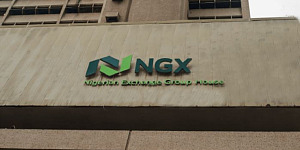In favorable market conditions where demand exceeds supply, leading to supply shortages, the investment case becomes appealing
In this context, the Nigerian palm oil sector has consistently faced this gap, supposedly, making it an attractive investment opportunity.
- According to data from the United States Department of Agriculture Service (USDA), Nigeria’s oil palm production surged to 1.5 million tons in the 2023/2024 market year, up from 1.4 million tons in the 2022/2023 market year.
- However, data from the Mundi Index reveals that oil consumption surged to 1.865 million tons in 2023 from 1.79 million tons in 2022, indicating a growth rate of 4.19%. Despite this, there is still a gap of 365,000 metric tons.
- Given a 5-year average yield of 0.4 tons per hectare, as per USDA data, producing this quantity would require an estimated 912,500 hectares of land.
The current scenario spotlights a great opportunity, especially considering that the combined plantation land of the two largest producers amounts to 58,489 hectares. Okomu controls 19,060 hectares of oil palm, while Presco holds a plantation land bank of 39,429 hectares.
The question is then amid cyclical market environments, how effectively have the two major companies capitalized on the unmet demand and supply gap?
In 2023, for instance, palm oil-producing companies, like others, faced a challenging environment characterized by elevated import costs, the removal of fuel subsidies, a devaluation of the Naira, heightened food prices, and a significant decline in the exchange rate.
Revenue Analysis
The combined revenue of the two companies in 2023 amounted to N117.527 billion, reflecting a 26.5% year-on-year growth. However, this growth falls short of the companies’ long-term revenue growth trajectory.
In the first quarter of 2024, there was an improvement as the combined revenue surged by 87% YoY to reach N86.028 billion. This amount represents 48.6% of the total aggregate revenue recorded in 2023. This suggests that they are likely to surpass 2023 revenue performance.
Presco Oil emerged as the top revenue generator in 2023, with revenue of N102.409 billion, constituting 57.8% of the total revenues and reflecting a year-on-year growth of 26.40%.
This growth, however, falls short of its five-year compound annual growth rate of 51%. This could indicate a potential slowdown in revenue expansion compared to previous years.
In Q1 2024, growth improved, with a 94% year-on-year increase, reaching N42.545 billion, which accounts for 42% of its 2023 revenue.
Okomu Oil leads in terms of revenue growth, showing a 26.61% YoY increase to N75.108 billion in 2023.
Okomu Oil attributes its revenue growth to inflationary-based increases in core products, specifically noting a 22% YoY increase in Crude Palm Oil (CPO) prices and a 28% rise in rubber prices.
The noted price increases likely continued to drive revenue growth in Q1 2024, with revenue surging by 79.6% year-over-year to N43.483 billion. This figure represents more than half of its revenue for 2023, indicating a strong possibility of surpassing its 2023 record.
Profitability and Margins
The combined pre-tax profit of the two companies surged by 94% year-on-year, reaching N83.846 billion in 2023.
This trend continued into Q1 2024, with a year-on-year growth of 89.76%, bringing the aggregate profit to N52.691 billion, representing 63% of the 2023 profit
Once again, Presco led the way, accounting for 60% of the total pre-tax profit. Its pre-tax profit soared by 152% year-on-year to N50.007 billion in 2023, while Okomu recorded 44% YoY growth reaching N33.839 billion.
Besides the relatively lower growth rate of the cost of sales compared to revenue growth, foreign exchange gains also contributed to the impressive pre-tax profit.
As a result, this is reflected in the healthy and robust profit margins of the companies, with an average pre-tax margin of 47% in 2023 and 61% in Q1 2024, surpassing their 5-year average pre-tax margin of 40%.
An average profit margin of 46% suggests that for every Naira of revenue generated, the companies retain N0.46 as profit after accounting for all expenses.
A consistently high profit margin like this can be encouraging, as it suggests that the companies can generate significant profits relative to their revenue, which can lead to higher returns on investment.
This probably spurred the relatively high return on equity recorded by the companies. In 2023, the companies achieved an average return on equity of 55%, with Presco leading at 57.5% and Okomu achieving a return on equity of 53.1%.
A high return on equity (ROE) indicates that a company is efficiently utilizing its shareholders’ equity to generate profits. For investors, a relatively high ROE like the one achieved can be seen as a positive indicator
However, beneath this positive indicator lies the concerning fact that the companies’ revenue growth did not match their asset expansion, as evidenced by the declining asset turnover ratio.
Both companies experienced a noteworthy decrease in asset turnover. Okomu’s asset turnover dropped by 43% YoY to 0.79 in 2023, while Presco also saw a decline of 1.7% YoY to 0.60.
A decline in asset turnover suggests that the companies are generating less revenue per unit of assets, which could be attributed to various factors such as reduced sales, inefficient asset utilization, or excessive asset expansion.
Despite this concern, investors are showing confidence by valuing the companies at more than N1 for every N1 of revenue. Okomu’s price-to-sales ratio of 2.58x, slightly higher than Presco’s 2.36, indicates that investors are willing to pay a premium for each unit of sales, hinting at expectations of future growth.
The presence of these factors, including robust product demand exceeding supply, resilient return on equity, driven by profit margins despite a decline in asset turnover, and unwavering investor confidence, reflected in the relatively high price-to-sales ratios, suggests an appealing investment prospect for stakeholders and prospective investors alike.



























































